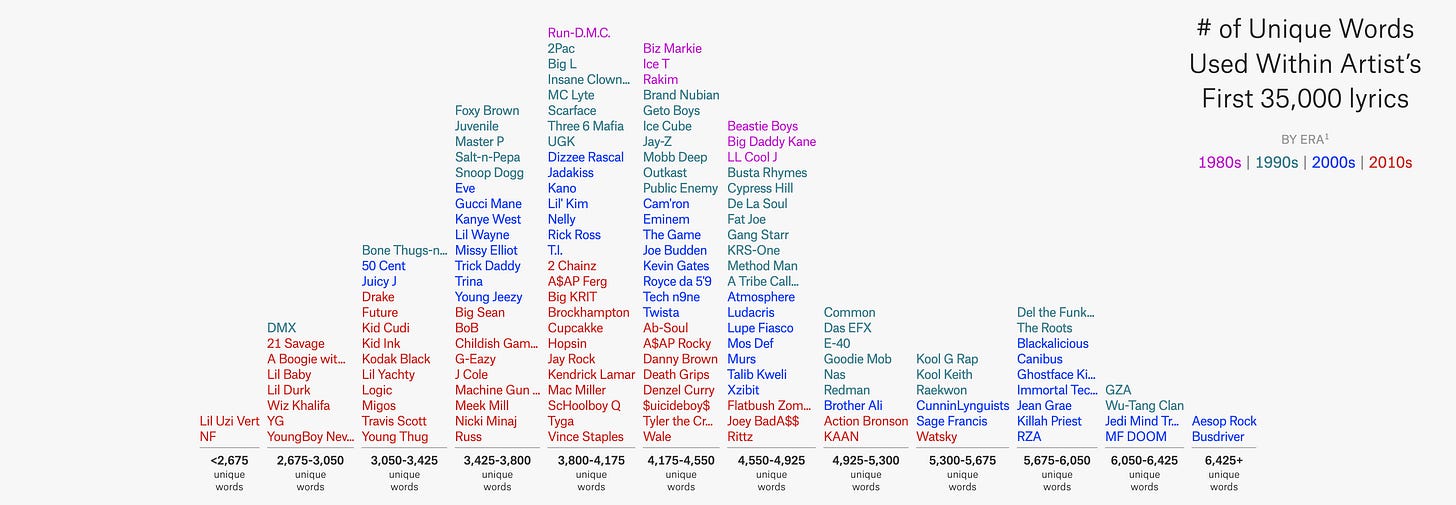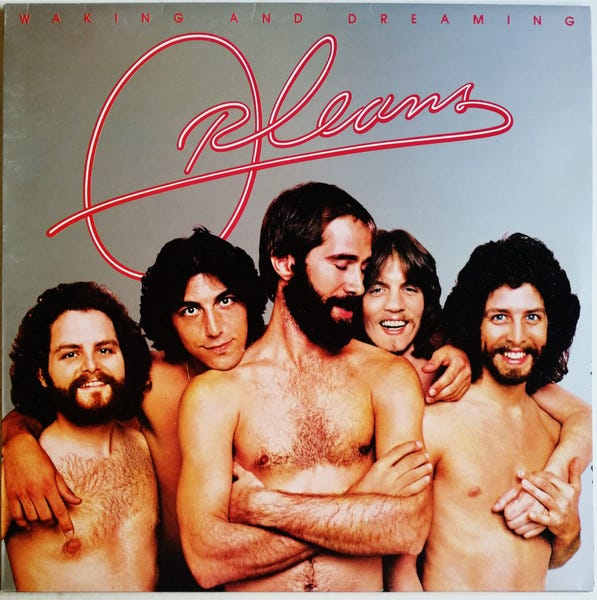Should I Be Worried About Spotify Focusing on Podcasts? Mailbag
This month we dive into questions about musical politicians, rapper vocabulary, and Duane Allman.
I think this was the first month that I got so many questions that I couldn’t answer them all. While that’s a good problem to have, I’m sorry if I didn’t select your submission. I will try to answer it in the future if I have a chance.
Should you have a question for next month, you can submit it using the button below. If your question is selected, you get a free premium subscription to this newsletter for a month. Premium subscribers get access to our archive, biweekly interviews, and priority when submitting questions.
Are there professional musicians who traded their music careers for political careers? - Thea
I want to start this answer with the cover of Orleans’ 1974 album Walking and Dreaming. Why? First, because it’s an all-time bad album cover that I love sharing with people. Second, because the guy in the center later became a U.S. representative for New York's 19th congressional district.
Decades after scoring hits as the lead singer of Orleans with songs like "Dance With Me" and "Still The One", John Hall grew dissatisfied with George W. Bush’s policies related to the environment and the Iraq War and ran for Congress on the Democratic ticket. He won a seat in 2006 and 2008 before being defeated by Republican Nan Hayworth in 2010.
A musician being interested in politics isn’t that unique. Since at least the 1960s, artists have endorsed and campaigned for politicians regularly. You also have artists supporting political causes constantly. Nevertheless, an artist being elected to the federal government is pretty unique. Here are a few others who have done it:
Sonny Bono: Long after helping launch the career of his then-wife Cher in the 1960s, Bono got involved in politics. He served as the U.S. representative for California's 44th district from 1995 until his death in 1998. The Copyright Term Extension Act, which I’ve complained about in this newsletter before, was passed nine months after his death and commonly referred to as the Sonny Bono Copyright Term Extension Act.
Charles C. Dawes: Bob Dylan is the only songwriter with a credit on a Billboard number one hit that’s also won a Nobel Prize, right? Nope. Enter Charles C. Dawes, U.S. Vice President from 1925 to 1929 under Calvin Coolidge. About a decade before getting the 1925 Nobel Peace Prize for his work on WWI reparations, Dawes composed “Melody in A Major”. In 1951, the year Dawes died, Carl Sigman set that melody to lyrics. Seven years later it topped the charts under the name “It’s All in the Game” as performed by Tommy Edwards.
Peter Garrett: The lead singer of band Midnight Oil, Garrett served as a member of the Australian Parliament from 2004 to 2013.
Orrin Hatch: Whatever you think of Orrin Hatch, the longest-serving Republican in U.S. Senate history, his background as an amateur musician and songwriter has paid some dividends for artists. In 2018, Hatch and his colleague Bob Goodlatte spearheaded the passage of the Music Modernization Act. While I have some problems with how pieces of this legislation have been implemented, it at least made a good faith effort to bring mechanical licensing into the digital age.
To close, I also want to shout out Clay Aiken. Though Aiken never won a federal election, he has run. In fact, his 2014 loss to Renee Ellmers in North Carolina’s 2nd Congressional District makes him the only person to ever finish second on American Idol and in a Congressional race.
Which artist(s) that released music in the first half of the 1900s are still popular today? - Anthony
The short answer? Almost none. The slightly longer answer? I looked at the current top 2,500 artists on Spotify and could only find four artists who had released at least one song in the 1940s: Frank Sinatra (436), Louis Armstrong (768), Nat “King” Cole (1199), and Ella Fitzgerald (2325). You could also argue that Ray Charles (857) makes the cut because he was involved in some music that came out in 1949.
Do newer rap songs really use worse vocabulary than older rap songs? - Rishab
In 2019, the data-journalism site The Pudding measured the number of unique words used by rappers in their lyrics between 1980 and today. What they found was that Aesop Rock had the largest vocabulary, NF had the smallest vocabulary, and your modal rapper used between 3,800 and 4,175 unique words.

They also found unequivocally that rappers of the 2010s had small vocabularies than those of the 1990s and 2000s. Does this mean that rappers are worse? Not exactly. Here’s what Matt Daniels of The Pudding wrote on just this question:
Some of the newer artists wield a smaller vocabulary comparatively, but this is not because hip hop has “dumbed down.” The genre has evolved; it has moved away from complex lyricism toward elements traditionally associated with pop music: repetitive song structure and singing … A better benchmark for Lil Uzi Vert’s word count (2,556) might be those of pop artists, such as Beyonce (2,433 words), or even one his major influences: Marilyn Manson (2,466 words).
Regardless, you should go check out the full piece. You can find out which member of the Wu-Tang Clan had the biggest vocabulary, if Eminem is really a cut above his contemporaries, and so much more.
Do you think Spotify focusing on podcast and non-music content is ultimately detrimental or beneficial to the music industry? - Charles




